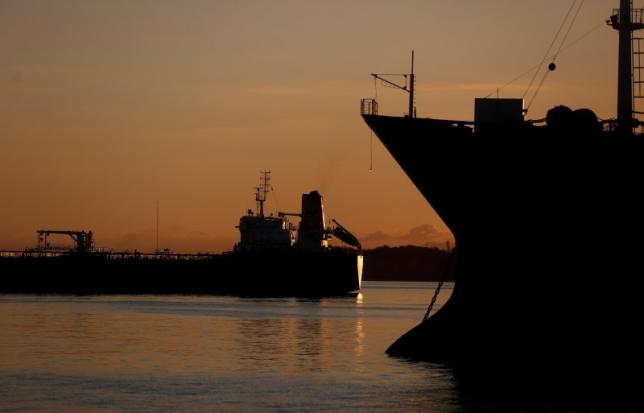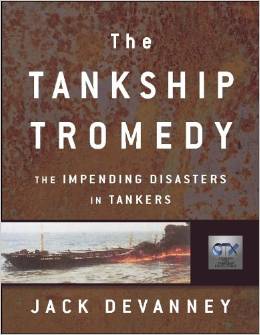Trump Trade Wars: A Look At Winners And Losers Since 2016
by Tom Orlik (Bloomberg) Who Loses in Trump’s Endless Trade War? In 2016, Donald Trump campaigned for the US presidency on a promise to beat China. Once in office, he unleashed a...

REUTERS/PILAR OLIVARES
![]() ByJonathan Saul and Libby George, LONDON, (Reuters) – Physical oil is coming under pressure as trade houses unwind a profitable storage play after several months that saw them holding millions of barrels on tankers at sea.
ByJonathan Saul and Libby George, LONDON, (Reuters) – Physical oil is coming under pressure as trade houses unwind a profitable storage play after several months that saw them holding millions of barrels on tankers at sea.
A drop in the volume of crude stored for speculative profit is putting more supply into an already saturated market, elbowing out new loadings leading to a build-up of unsold West African, North Sea and Mediterranean oil.

When the contango started, it created a demand,” said Tamas Varga of PVM oil brokerage. Now “they are creating additional supply”.
“The structure of the market should weaken significantly,” Varga added. “There is just lots of oil around in the U.S. and globally.”
Oil prices collapsed by 60 percent between June last year and January 2015, pushing the cost of oil for immediate delivery to a big discount below future prices and making it profitable to buy oil and store it for sale later.
At its peak earlier this year as much as 50 million barrels of oil was estimated to have been earmarked for storage on tankers. The oil market has since rallied – flattening that discount, also known as a contango, leading trade houses to cash in on profits.
Shipping sources and shipping data estimated that volumes earmarked for contango-led floating storage had dropped to as few as 10 tankers, known as very large crude carriers, each capable of carrying a maximum of 2 million barrels, meaning at most 20 million barrels.

“We’re getting to the point where it makes sense to sell,” Richard Mallinson, analyst with Energy Aspects.
“Effectively, we’re reaching the end of that storage.”
In the past week alone as much as 5 million barrels of floating storage has been sold, shipping data showed.
In an earlier sale last month, Chinese trader Unipec sold 2 million barrels of Nigerian crude that was stored on one of the world’s largest tankers, capable of holding 3 million barrels, to an Indian refiner.
Trade sources said trading firms such as Trafigura and Vitol as well as Shell had all sold cargoes held in floating storage.
The companies declined to comment when contacted by Reuters.
“If you want to recreate the contango trade, you need a steep drop … in the oil price to make it viable given where tanker rates are today,” said Arctic Securities analyst Erik Nikolai Stavseth.

Mallinson contends that the long-term effect may be a drop in the market surplus of crude oil, but in the near-term, it adds to the oversupply:
“It makes the pain worse in the short term,” he said.
Nevertheless, for holders of millions of barrels of West African crude and also North Sea oil in the Atlantic, the sell-off in floating storage could mean a longer wait to offload cargoes as they compete. “Everyone is trying to sell,” one oil trader said. (Editing by William Hardy)(Reuters)
© 2015 Thomson Reuters. All rights reserved.

Sign up for gCaptain’s newsletter and never miss an update

Subscribe to gCaptain Daily and stay informed with the latest global maritime and offshore news


Stay informed with the latest maritime and offshore news, delivered daily straight to your inbox
Essential news coupled with the finest maritime content sourced from across the globe.
Sign Up